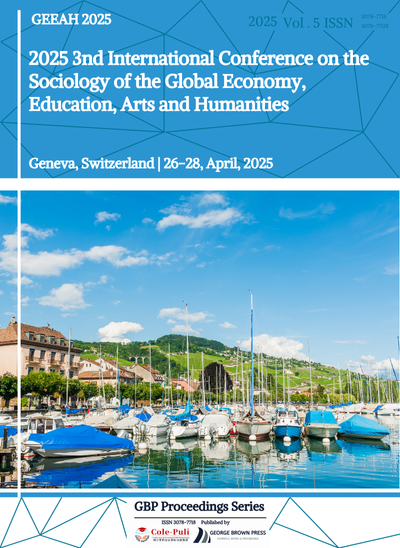A Synergetic Assessment Framework Based on Composite System Coordination Metrics: Empirical Analysis of Ecological-Environmental Service Integration in the Jiaodong Economic Zone
DOI:
https://doi.org/10.71222/a8xh0z91Keywords:
Jiaodong economic zone, ecological-environmental services, composite system synergy metrics, collaborative governanceAbstract
Regional coordinated development demonstrates a robust interdependency with the integration of ecological-environmental services. This study establishes a multidimensional assessment framework for ecological-environmental service integration within the Jiaodong Economic Zone. Employing entropy weighting methodology, we conduct quantitative analysis of service provision levels spanning 2011-2023, with spatial heterogeneity characteristics elucidated through coefficient of variation and Gini coefficient computations. A composite system synergy model, augmented by system dynamics simulation, enables comprehensive evaluation of synergetic development efficiency across the economic zone. The findings reveal measurable progress in ecological service integration. However, they also identify persistent structural barriers, including interjurisdictional disparities in public goods allocation, organizational inertia within existing administrative structures, and suboptimal performance evaluation mechanisms. Policy recommendations emphasize incentive architecture optimization, collaborative governance institution building, and multidimensional assessment system design to catalyze regional synergy enhancement.
References
1. W. Hong, Y. Li, X. Yang, R. Guo, M. Liang, and X. Li, "Identification of intercity ecological synergy regions and measurement of the corresponding policy network structure: A network analysis perspective," Landsc. Urban Plan., vol. 245, p. 105008, 2024, doi: 10.1016/j.landurbplan.2024.105008.
2. Z. Deng, Y. Chen, F. Jiang, Y. Zhang, Z. Xie, Y. Zhang, and L. Zhao, "Spatio-temporal study on coupling coordination between urbanization and eco-resilience in the Erhai Lake Basin," All Earth, vol. 36, no. 1, pp. 1–20, 2024, doi: 10.1080/27669645.2024.2317053.
3. S. Xiang and W. Zhou, "Challenges and countermeasures of marine ecological and environmental governance in the Guang-dong-Hong Kong-Macao Greater Bay Area—Based on the perspective of multi-level governance," SSRN Electron. J., 2023, doi: 10.2139/ssrn.5184857.
4. J. Jiang, X. Wang, G. Xu, S. Jiang, J. Gu, and J. Zhang, "Exploring the coupling coordination and spatial correlation of logistics industry and regional economy in the context of sustainable development: Evidence from the Yangtze River Delta region," Sustainability, vol. 15, no. 2, p. 992, 2023, doi: 10.3390/su15020992.
5. D. Li and W. Yang, "The regional difference, dynamic evolution, and multidimensional inequality of China’s ecological envi-ronment quality from the concept of ecological resilience," Environ. Sci. Pollut. Res., vol. 30, no. 12, pp. 34793–34813, 2023, doi: 10.1007/s11356-022-24696-w.
6. Y. Wang, C. Wu, B. Wu, J. Zhao, and H. Wang, "Evaluation of spatial structure resilience in coastal traditional villages using complex network analysis: Case study of Rongcheng City, Shandong Province," Land, vol. 14, no. 3, p. 505, 2025, doi: 10.3390/land14030505.











